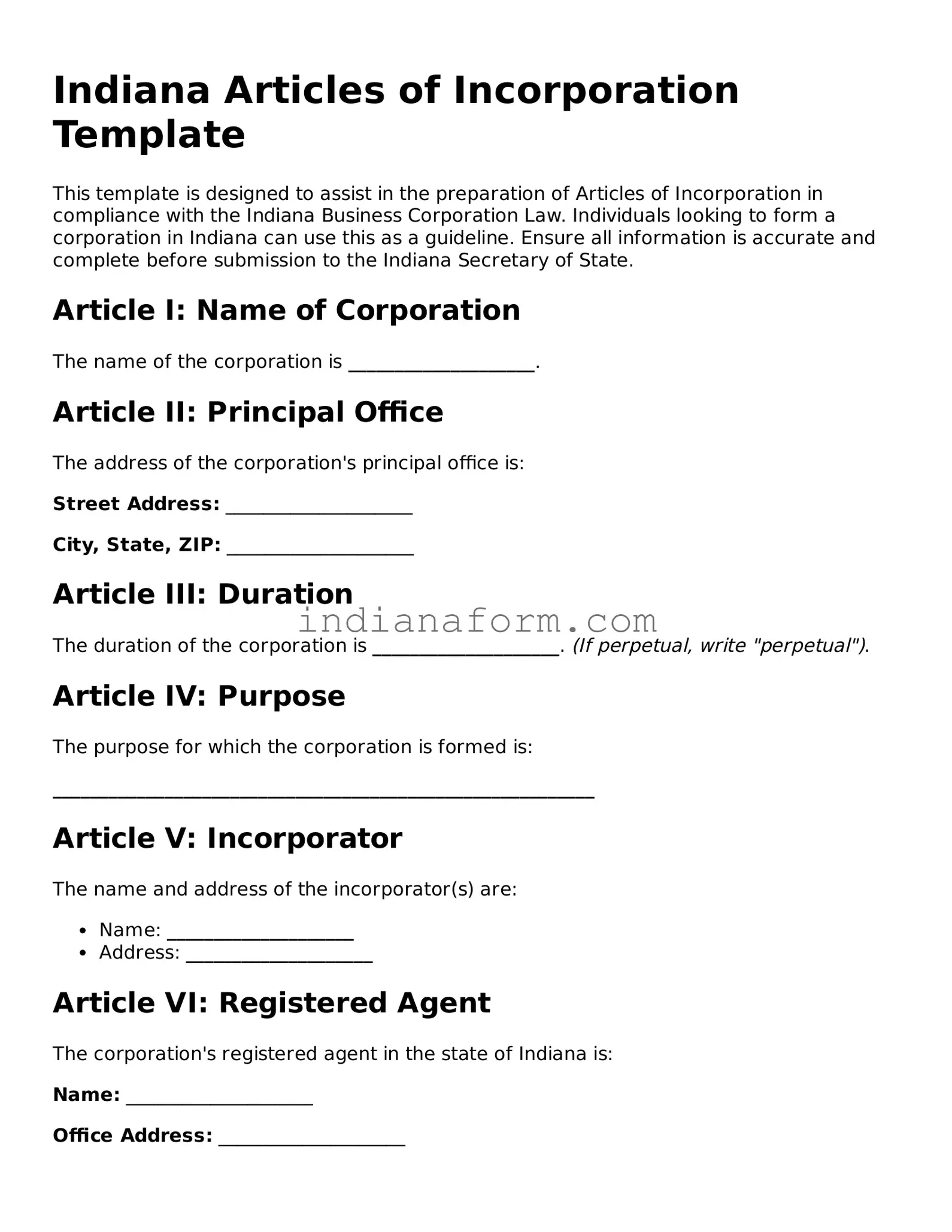Indiana Articles of Incorporation Template
The Indiana Articles of Incorporation form serves as the formal documentation required to legally establish a corporation within the state of Indiana. This foundational document outlines key details about the corporation, such as its name, purpose, and organizational structure. Filing this form with the Indiana Secretary of State is a necessary step for any business seeking the benefits and legal recognition of incorporation.
Fill Out Your Document Online

Indiana Articles of Incorporation Template
Fill Out Your Document Online

Fill Out Your Document Online
or
⇓ Articles of Incorporation PDF Form
Don’t stop halfway through your form
Edit your Articles of Incorporation online and get it downloaded.